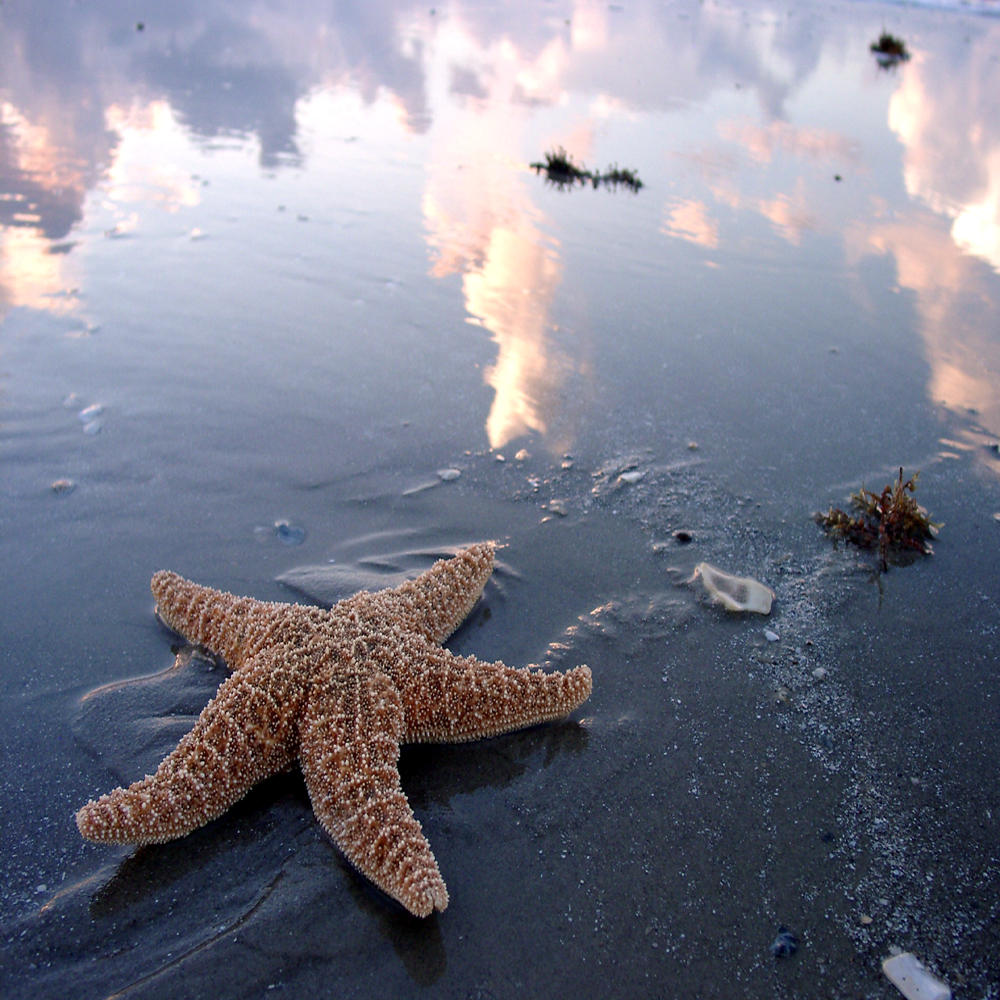Dr. Martin Luther King, Jr. once said, 'The first question which the priest and the Levite asked was: "If I stop to help this man, what will happen to me?" But... the good Samaritan reversed the question: "If I do not stop to help this man, what will happen to him?"'
Recommending "first do no harm" is so often met with disdain, sarcasm, dismissal, defensiveness ("Well, that's the way it was for me and I'M fine!"--often from people who are anything but) and outright hostility. It makes no sense and it's discouraging. Sometimes one wonders why to even keep trying. Well, with much thanks to Danielle at Peaceful Parenting for sharing a story that explains why we do keep trying, I'm passing this story along:
 Image courtesy ~foureyestock
Image courtesy ~foureyestockFrom The Star Thrower by anthropologist and writer, Loren Eiseley (1907-1977)
Once upon a time, there was a wise man who used to go to the ocean to do his writing. He had a habit of walking on the beach before he began his work.
One day, as he was walking along the shore, he looked down the beach and saw a human figure moving like a dancer. He smiled to himself at the thought of someone who would dance to the day, and so, he walked faster to catch up.
As he got closer, he noticed that the figure was that of a young man, and that what he was doing was not dancing at all. The young man was reaching down to the shore, picking up small objects, and throwing them into the ocean.
He came closer still and called out, "Good morning! May I ask what it is that you are doing?"
The young man paused, looked up, and replied, "Throwing starfish into the ocean."
"I must ask, then, why are you throwing starfish into the ocean?" asked the somewhat startled wise man.
To this, the young man replied, "The sun is up and the tide is going out. If I don't throw them in, they will die."
Upon hearing this, the wise man commented, "But, young man, do you not realize that there are miles and miles of beach and there are starfish all along every mile? You can't possibly make a difference!"
At this, the young man bent down, picked up yet another starfish, and threw it into the ocean. As it met the water, he said, "It made a difference for that one."

Note: This is a true story that Eiseley wrote about. He was the 'wise man' walking the beach before his morning writing session. He encountered this young man throwing starfish back into the ocean and was forever impacted by the experience. His story is told in many forms, in many places - but rarely is credit given to Eiseley as the original author and subject of the narrative.
Another discouraging thought many people have is: "How does my voice matter? I'm only one person." This is from anything in life that we want to see change. Yes, you are one person. Just as the person who shared their knowledge with me was just one person. Now we're two. From there, many hear our words and if just one person listens to each of us, we are four. Then eight. Sixteen. Thirty-two. I think you can continue the math. Rarely, though, does one person only affect one person.
Look at a teacher in a classroom--a typical classroom of an average of 20 students. Every year or even twice a year if high school. For twenty years of teaching, that is 400-800 kids. I had a microbiology teacher who imparted life wisdom that was actually usable in addition to the science. He taught me about Shettles and delayed cord clamping and the importance of avoiding debt (except for home ownership) because he thought it would be interesting to us. I don't know how many of my classmates listened, but I did. I pass that information along to people who pass it along.
One person is only one person when their voice is silent. Gandhi said, "Nearly everything you do is of no importance, but it is important that you do it," and "Non-cooperation with evil is as much a duty as is cooperation with good." Voltaire said, "Stand upright, speak thy thoughts, declare The truth thou hast, that all may share; Be bold, proclaim it everywhere: They only live who dare." As well as, "The instruction we find in books is like fire. We fetch it from our neighbours, kindle it at home, communicate it to others, and it becomes the property of all." Dr. King said, "History will have to record that the greatest tragedy of this period of social transition was not the strident clamor of the bad people, but the appalling silence of the good people."
They were all "one person." I'm not saying that we will become famous for spreading the information, just that "one person" doesn't mean a lot, because all groups are made up of a lot of "one person".
"Almost always, the creative dedicated minority has made the world better." -Dr. MLK, Jr.
"Be the change you wish to see in the world." -Mohandas Gandhi
No comments:
Post a Comment
Please keep it civil and remember that my blog is not for debate. I have friends in all walks of life, so don't assume anything from individual posts! I do enjoy hearing from you, though :)